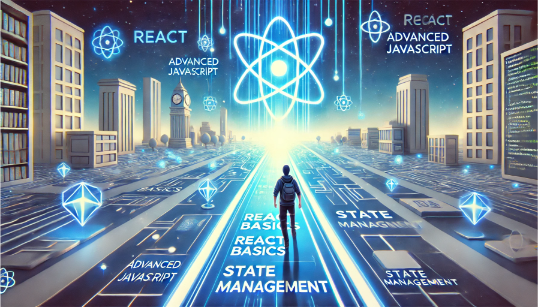Embarking on a career in .NET development can be both exciting and challenging. Whether you’re just starting out or looking to advance your skills, understanding the path from beginner to pro is crucial. This comprehensive guide will walk you through the essential steps, from grasping the basics to mastering advanced concepts. If you’re eager to enhance your net developer skills, you might find our tutorial on skills to become ASP.NET Core developer particularly useful. Additionally, for a structured approach, consider following the .net developer roadmap outlined in our .NET developer in 2024 guide.
Understanding the Basics of .NET Development
What is .NET?
.NET is a versatile, open-source framework developed by Microsoft. It supports a wide range of programming languages, including C#, F#, and Visual Basic. The framework is designed to build a variety of applications, from web and mobile apps to desktop and cloud services.
Getting Started with .NET
To begin your journey in .NET development, you need to familiarize yourself with the core components of the framework. This includes understanding the Common Language Runtime (CLR), the .NET Standard Library, and the various tools and IDEs available, such as Visual Studio.
Learning C#
C# is the primary language used in .NET development. It’s essential to have a strong grasp of C# fundamentals, including syntax, data types, control structures, and object-oriented programming concepts.
Building Foundational Skills
Mastering Object-Oriented Programming
Object-Oriented Programming (OOP) is a cornerstone of .NET development. Understanding concepts like classes, objects, inheritance, polymorphism, and encapsulation will help you write clean, maintainable code.
Working with Databases
Most applications require interaction with databases. Learning SQL and understanding database management systems (DBMS) like SQL Server, MySQL, or PostgreSQL is crucial. Additionally, familiarize yourself with Entity Framework, an Object-Relational Mapper (ORM) that simplifies database operations.
Developing Web Applications
Web development is a significant part of .NET. ASP.NET Core is a powerful framework for building web applications. You should learn about MVC (Model-View-Controller) architecture, Razor Pages, and how to create RESTful APIs using ASP.NET Core.
Advancing Your Skills in .NET Development
Exploring Advanced Topics
As you progress, you’ll need to dive into more advanced topics. This includes understanding asynchronous programming, dependency injection, and design patterns. These concepts will help you write more efficient and scalable code.
.NET Development in the Cloud
Cloud computing is becoming increasingly important. Learning how to deploy and manage .NET applications on cloud platforms like Azure will open up new opportunities. Familiarize yourself with Azure services, such as Azure App Service, Azure Functions, and Azure Kubernetes Service.
Building Microservices
Microservices architecture is a modern approach to building scalable and maintainable applications. Understanding how to design, develop, and deploy microservices using .NET will be beneficial. This includes learning about containerization with Docker and orchestration with Kubernetes.
Becoming a Pro in .NET Development
Contributing to Open Source
Contributing to open-source projects is a great way to gain practical experience and build your portfolio. It also allows you to collaborate with other developers and learn from their code.
Staying Updated with the Latest Trends
Technology is constantly evolving, and .NET is no exception. Stay updated with the latest releases, features, and best practices. Follow .NET blogs, attend webinars, and participate in developer communities.
Certifications and Continuous Learning
Obtaining certifications can validate your skills and make you more attractive to employers. Consider getting certified in areas like Azure Development or ASP.NET Core. Continuous learning is key to staying relevant in the tech industry.
Conclusion
Advancing your career in .NET development requires a combination of foundational knowledge, practical experience, and continuous learning. From understanding the basics to mastering advanced topics, the journey from beginner to pro is both rewarding and challenging. By staying updated with the latest trends and contributing to the community, you can become a proficient .NET developer.
FAQs
What are the prerequisites for learning .NET?
Before diving into .NET, it’s helpful to have a basic understanding of programming concepts. Familiarity with any programming language can be beneficial, although C# is the most commonly used language in .NET development.
How long does it take to learn .NET?
The time it takes to learn .NET can vary depending on your prior experience and the amount of time you can dedicate to learning. Generally, it can take anywhere from a few months to a year to gain a solid understanding of the framework.
What are the best resources for learning .NET?
There are numerous resources available for learning .NET, including online tutorials, books, and courses. Some popular platforms include Microsoft Learn, Pluralsight, and Udemy.
What is the difference between .NET Framework and .NET Core?
.NET Framework is the original framework developed by Microsoft, primarily for Windows applications. .NET Core, on the other hand, is a cross-platform, open-source framework that supports Windows, macOS, and Linux.
What are some common mistakes beginners make in .NET development?
Common mistakes include not understanding the basics of C#, neglecting best practices for coding, and not properly managing dependencies. It’s also common for beginners to overlook the importance of testing and debugging.
How can I practice .NET development?
Practicing .NET development involves building projects, contributing to open-source, and participating in coding challenges. You can also work on personal projects or contribute to existing ones on platforms like GitHub.
What are the career opportunities in .NET development?
Career opportunities in .NET development are vast and include roles such as software developer, web developer, full-stack developer, and cloud engineer. There are also opportunities in consulting, training, and technical writing.
What are the benefits of using .NET for development?
.NET offers numerous benefits, including cross-platform support, a rich set of libraries, and strong community support. It also provides tools for building scalable, high-performance applications.
How can I stay updated with the latest in .NET development?
Staying updated involves following .NET blogs, attending webinars and conferences, and participating in developer communities. You can also follow Microsoft’s official channels for the latest updates and releases.
What are some popular tools and IDEs for .NET development?
Popular tools and IDEs for .NET development include Visual Studio, Visual Studio Code, and JetBrains Rider. These tools provide a comprehensive environment for coding, debugging, and deploying .NET applications.


